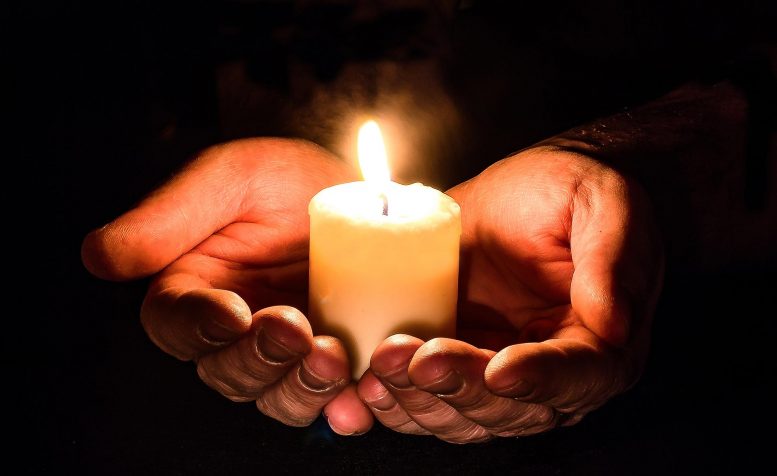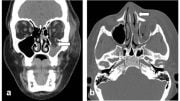
Groundbreaking research by a University of Wyoming economist has shed new light on the controversial topic of the value of “thoughts and prayers” in response to natural and human-caused disasters.
An experiment led by Assistant Professor Linda Thunstrom, of the Department of Economics in UW’s College of Business, found that Christians who suffer such adversity value thoughts and prayers from religious strangers, while atheists and agnostics believe they are worse off from such gestures. The research appears in the prestigious scientific journal Proceedings of the National Academy of Sciences.
“The net effect on recipient welfare from thoughts and prayers depends on how recipients perceive to benefit from such intercessory gestures,” says Thunstrom, who conducted the research in conjunction with former UW sociology faculty member Shiri Noy, now with Denison University in Ohio.
The debate over the value of “thoughts and prayers” has come to the forefront as a result of the verbal responses of political and other leaders to mass shootings and natural disasters such as hurricanes and wildfires. Some critics argue that expressing sympathy through thoughts and prayers is a meaningless gesture in response to tragedy — and that, in some cases, it’s an excuse to not take action.
Thunstrom and Noy’s study placed actual economic values on thoughts on prayers through an experimental survey of victims of Hurricane Florence in North Carolina last year. They found that, from the perspective of Christian hurricane victims, the monetary value of prayers by others on their behalf was significant. Meanwhile, atheists and agnostics were actually “prayer-averse,” placing a negative monetary value on prayers on their behalf by others.
“Our results suggest that thoughts and prayers for others should ideally be employed selectively,” Thunstrom and Noy wrote. “While Christians value such gestures from fellow believers, non-religious people negatively value such gestures from Christians and are indifferent to receiving them from other non-religious people.”
Specifically, the study found that, on average, Christian hurricane victims value prayers from a Christian stranger at $4.36, and $7.17 from a priest. In contrast, non-religious people are willing to pay $3.54 for a Christian stranger and $1.66 for a priest to not pray for them.
Likewise, Christians value thoughts from a religious stranger at $3.27, while non-religious people negatively value the same gesture (-$2.02).
Suggesting more research on the perceived value of thoughts and prayers in response to catastrophes, Thunstrom says consideration of the findings could temper the public debate over the issue.
“The finding that Christians benefit from intercessory prayers, while the welfare of atheists/agnostics is reduced by such gestures, underscores the divide in this popular response to hardships,” Thunstrom says. “Our results might also reflect the political and religious polarization in the United States. We find that it matters who sends the gesture — Christians value gestures from other religious Christians, while non-religious attach a higher value to supportive gestures from other non-religious. A deeper understanding of the values and beliefs of different groups with respect to thoughts and prayers may, however, reduce some of the animosity surrounding thoughts and prayers in the public debate.”
Reference: “The value of thoughts and prayers” by Linda Thunström and Shiri Noy, 16 September 2019, Proceedings of the National Academy of Sciences.
DOI: 10.1073/pnas.1908268116









You might consider religion stupid, but it makes sense that a religious person would value prayers. But how could an atheist have a value other than zero? If you don’t believe in God, why would you care enough that someone is praying to pay them not to?
> If you don’t believe in God, why would you care enough that someone is praying to pay them not to?
Because it’s annoying (it ignores the atheist’s beliefs), and because it’s a waste of effort that could have been put to an actual use (from the atheist’s viewpoint).
If a Hindu offered to pray to Rama for a Christian’s problem, how would that Christian feel?
“The research appears in the prestigious scientific journal Proceedings of the National Academy of Sciences.” I reread this piece a few times and could make no sense out of it.
This is scientific research worth publishing, anywhere?
I think when people talk about the value of thoughts and prayers they dont mean a dollar amount, that makes no sense, what they are saying its what is actually achieved by giving thoughts and prayers. The study is batsh*t crazy… Atheists would pay you to not pray!?!, what level of lunacy could lead to such an outcome and frankly what initial question to begin with.
To me the value of thoughts and prayers would be in the outcome, can you prove that thoughts and prayers actually change outcomes. Not Ill give you 5 dollars if you f off and stop bothering me.